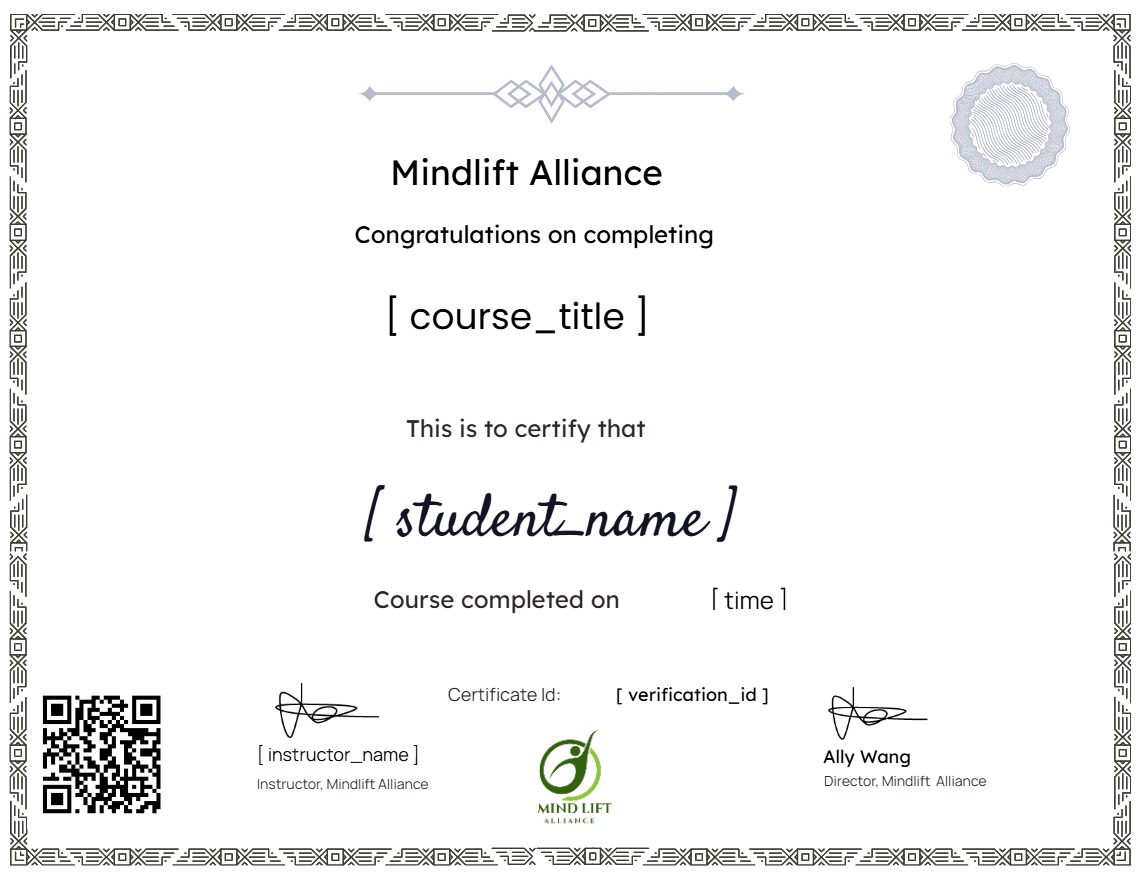About Course
Course Content
Module 1: Introduction to Anger
-
Lesson 1: What is Anger?-Video
04:27 -
Lesson 1: What is Anger?
-
Lesson 1: What is Anger? 2
-
Understanding Your Anger: Personal Reflection Worksheet
-
Title: Anger Myths vs. Facts
-
Lesson 2: The Emotional and Physiological Response to Anger (Cognitive-Behavioral Perspective) Video
00:00 -
Lesson 2: The Emotional and Physiological Response to Anger (Cognitive-Behavioral Perspective)
-
Lesson 2: The Emotional and Physiological Response to Anger (Cognitive-Behavioral Perspective) 2
-
Exploring Your Anger Response: Thoughts and Physical Reactions
-
The Emotional and Physiological Response to Anger
-
Lesson 3: Healthy vs. Unhealthy Expressions of Anger (Video)
03:50 -
Lesson 3: Healthy vs. Unhealthy Expressions of Anger
-
Lesson 3: Healthy vs. Unhealthy Expressions of Anger 2
-
Worksheet: “My Anger Habits”
-
Quiz: Healthy or Unhealthy?
-
Lesson 4: The Impact of Uncontrolled Anger Video
04:03 -
Lesson 4: The Impact of Uncontrolled Anger
-
Lesson 4: The Impact of Uncontrolled Anger 2
-
Worksheet: “The Cost of My Anger”
-
Quiz: Understanding the Impact of Anger
-
Lesson 5: Healthy Expressions of Anger & Emotional Regulation Video
04:29 -
Lesson 5: Healthy Expressions of Anger & Emotional Regulation
-
Lesson 5: Healthy Expressions of Anger & Emotional Regulation 2
-
Worksheet: Healthy Anger Expression & Emotional Regulation
-
Healthy Anger Expression & Emotional Regulation
Module 2: Identifying Anger Triggers
Module 3: De-escalation and Coping Strategies
Module 4: Taking Responsibility & Personal Insight
Module 5: Conflict Resolution & Communication Tools
Module 6: Cognitive Restructuring – Changing Thought Patterns
Module 7: Handling Anger in High-Stress Situations
Module 8: Anger & Identity – How You See Yourself
Graduation & Long-Term Commitment to Change
Earn a certificate
Add this certificate to your resume to demonstrate your skills & increase your chances of getting noticed.

Student Ratings & Reviews

No Review Yet

